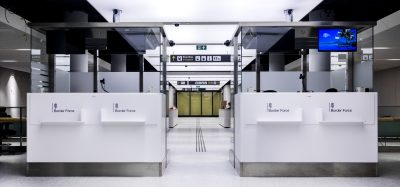UK to share expertise on large-scale rail projects with Israel
Posted: 24 August 2022 | Elliot Robinson (Editorial Assistant - Global Railway Review) | No comments yet
The signing of a MOU between the UK and Israel follows the successful recent launch of the Elizabeth line, and provides opportunity for British engineers and advisors to share their ingenuity and experiences.
The UK’s Department for Transport (DfT) has announced that a Memorandum of Understanding (MOU) has been signed with Israel, bringing fresh business opportunities and potential new jobs for the UK’s rail industry.
The partnership will share expertise on large-scale rail projects, following the successful launch of the UK’s Elizabeth line which slashed fares by over a third for commuters across London and massively reduced journey times. The project is also estimated to pump £42 billion into the UK economy and has created more than 55,000 jobs and 1,000 apprenticeships while expanding central London’s rail capacity by 10 per cent. The benefits of the state-of-the-art line will be extended overseas, through the DfT’s Crossrail International advisory company. It is now hoped business opportunities with Israel, the UK’s third biggest transport goods trading partner, will not only enable firms to share valuable expertise, but boost economic growth and could lead to more jobs being created.
In July 2022, the UK launched negotiations with Israel to upgrade the current trade deal, currently worth £5 billion and supports 6,600 UK businesses. The upgraded agreement would establish a modern, revamped trading relationship between two of the world’s services superpowers. This includes seeking improved access to major public sector contracts for UK businesses and boosting opportunities for the services sector. In 2021 alone, the UK imported £144 million of transportation services from Israel, highlighting the close relationship between our two nations.
“This partnership further ingrains our commitment to a global Britain, helping our world-leading rail industry to extend its expertise to friends overseas, while unlocking fresh business opportunities to boost the UK economy,” Grant Shapps, Transport Secretary, said. “Following the successful launch of our Elizabeth line, this memorandum is a fantastic opportunity for our British engineers and advisors to share their ingenuity with Israel as they undertake their largest ever rail project in Tel Aviv. ”
Related news you will enjoy:
Passenger numbers hitting 92-93 per cent of pre-pandemic levels
The UK-Israel MOU comes as Israel undertakes a multi-billion-pound mass transit project in Tel Aviv, the country’s largest and most complicated infrastructure project to ever exist. The scheme is being supported by the DfT owned Crossrail International, a specialist advisory company which offers its expertise across the globe to deliver complex rail projects. The project will see the build of three light rail and metro lines to serve 27 local authorities and three million passengers daily.
The new memorandum will allow both countries to share experience and best practice in relation to large-scale transport projects. For example, the UK’s Crossrail International will offer advice to Israel on design, safety and standards of new train lines across the country. Expertise will also be shared on ensuring the build of transport projects is as green and sustainable as possible.
“Our aim is to share good practice, lessons learned and innovation to provide better outcomes and wider benefits for our respective societies,” Paul Dyson, Chief Executive Officer of Crossrail International, said. “Crossrail International is extremely proud to be a partner of this MOU and to act as a conduit of UK knowledge, skills and expertise that will support the Israeli Ministry of Transport in the delivery of its transformational rail transit portfolio.”
“I am confident that the know-how we have shared and the agreements we have signed will result in better transportation in both countries, and particularly greener, shared transport that the world needs so much as we face the climate crisis,” Merav Michaeli, Minister of Transport and Road Safety for Israel, said. “These steps contribute to strengthening the relations between Israel and the United Kingdom and are a cornerstone of our important bilateral ties.”
Related topics
Infrastructure Developments, Regulation & Legislation, The Workforce








